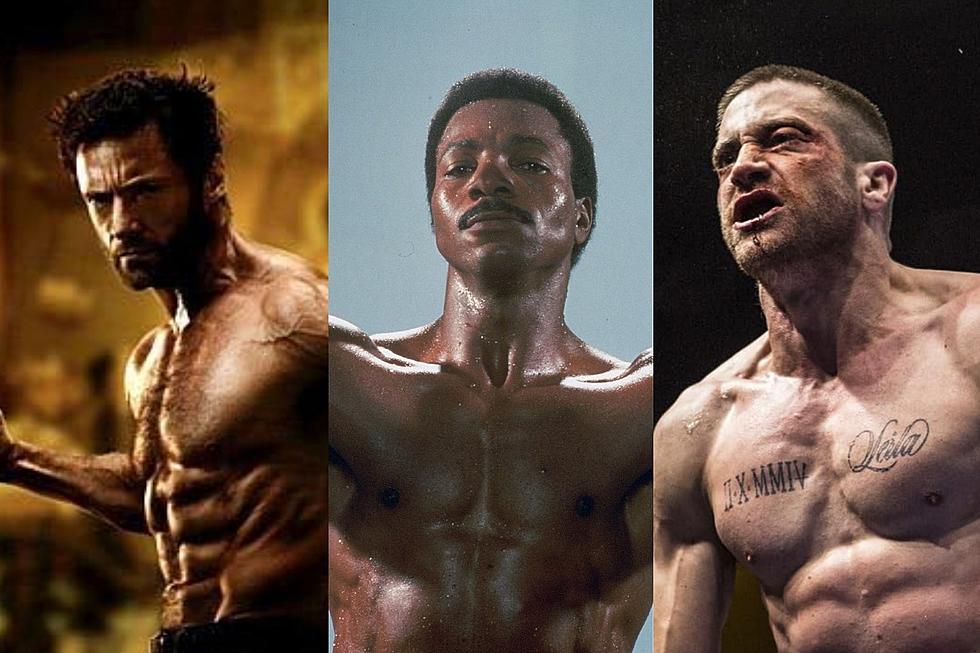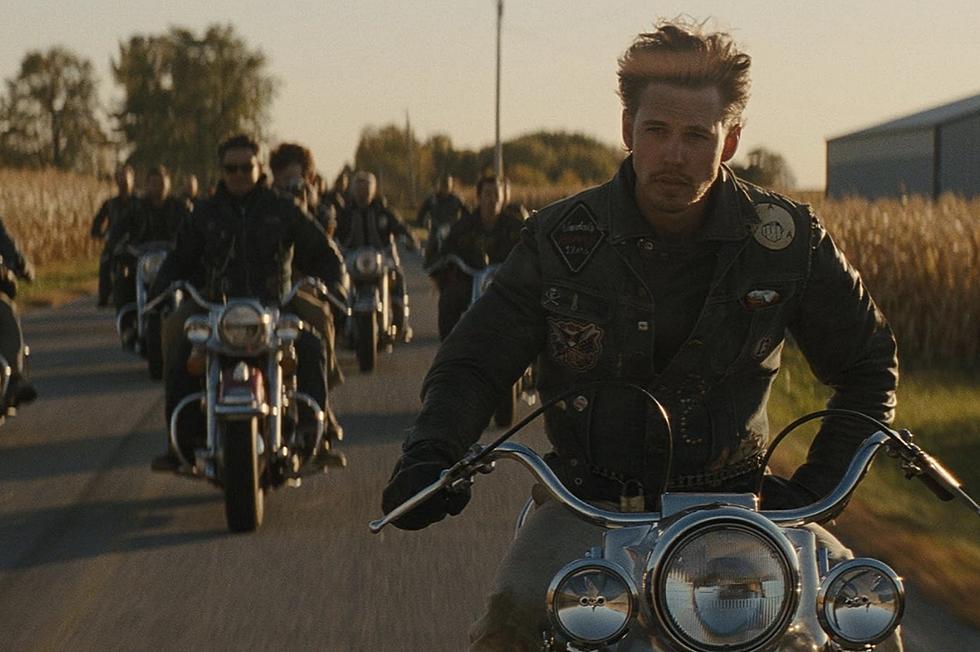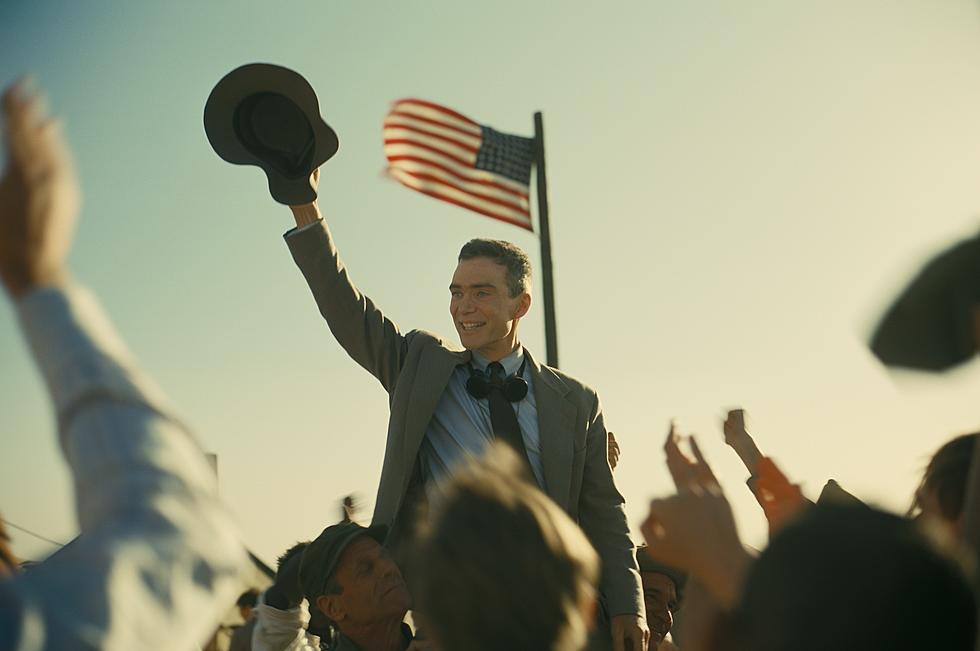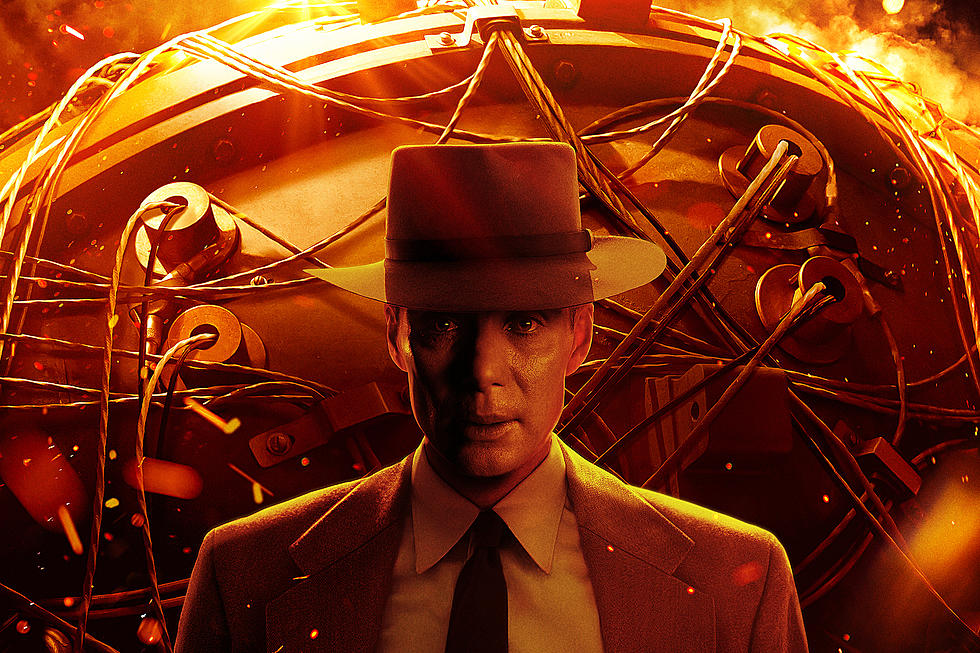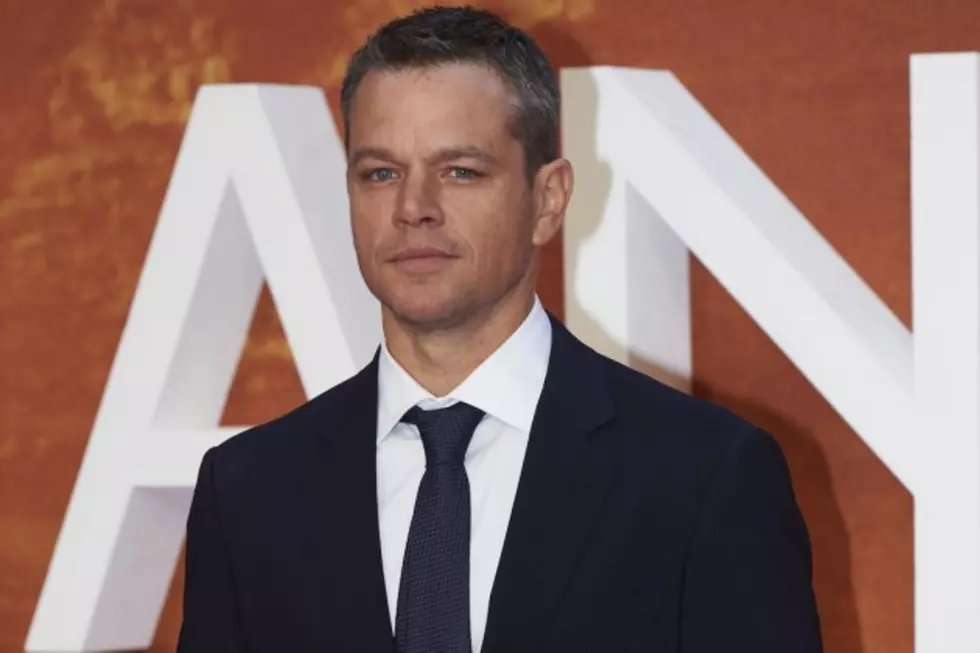
Matt Damon and Tom Hardy’s Comments About Sexuality Are Harming LGBT Diversity in Hollywood
One of the most exciting things about this year in film is how diverse the industry has become in terms of LGBT representation. With The Danish Girl, Freeheld, Tangerine and About Ray hitting on rarely explored topics relating to queer and transgender characters, the big screen is showcasing a variety of stories that are slowly shifting the landscape of how gender and sexuality are depicted in cinema. However, off-screen discussions about coming out of the closet and embracing one’s sexuality have hardly changed for the better. If anything, recent comments by both Matt Damon and Tom Hardy reflect a larger problem in Hollywood, which — even at a moment of seeming progress — feels stuck in a former conservative era.
Damon backed himself into a controversial corner yet again this week — following his recent mansplaining of racial diversity — during an interview with The Guardian. At one point in the interview, Damon brought up old rumors about his and Ben Affleck’s sexuality after they wrote Good Will Hunting, saying that at the time the comments were “really deeply offensive.” The actor then referenced Rupert Everett’s coming out, saying how much it hurt the English actor’s career at the time, which Everett has, more or less, expressed himself. But the problematic comments came after, when Damon said the less that is known about an actor’s personal life, including his or her sexuality, the better of an actor they are. Damon’s quotes were somewhat taken out of context by the monster known as internet clickbait, with many headlines reading that Damon claimed gay actors should stay in the closet. That’s not exactly what he said, but still, the sentiment behind his words reflects how being openly gay is still being stifled by the entertainment industry. We’ll let Damon speak for himself:
I think it must be really hard for actors to be out publicly. But in terms of actors, I think you’re a better actor the less people know about you period. And sexuality is a huge part of that. Whether you’re straight or gay, people shouldn’t know anything about your sexuality because that’s one of the mysteries that you should be able to play.
It’s true; it can be hard for actors to be out publicly, and Damon’s comments are not helping that issue. According to Damon, an actor’s talent can be impaired by public knowledge of their sexuality. This not only furthers the notion that the reaction to coming out can damage one’s reputation, as it did somewhat for Everett, but also the claim that an actor is only as good as the secrets he or she keeps. If talent were determined by how much the public knows about actors on screen, the majority of Hollywood wouldn’t be very talented at all in this day and age of our social-media-obsessed overshare culture.
In another way, Damon’s comments undercut real-life experiences of queerness, preferring sexual identity to be implemented as performance rather than embraced as real-life identity. As HitFix’s Louis Vitrel put so well in his response to Damon’s comments, the actor is “suggesting that gayness onscreen is best experienced as an affect, not as an actuality.” But again, how would Damon know what that experience is like for a gay actor?
Hiding who you truly are does not necessarily make you a better actor, and if it does for someone like Damon, he could simply have said keeping his own personal life private is the method he employs. Generalizing his beliefs to apply to all identities, especially when speaking from the privileged standpoint of an openly straight male actor (more on that later), is where he’s opened himself up for attack. An actor’s real-life experience can largely influence the ways in which he approaches a role or a script, but why should the public knowledge of that experience make a difference in how the character is played? For some actors, coming out has actually made them better.
Sir Ian McKellen spoke about the topic recently on an episode of Marc Maron’s WTF podcast. The veteran performer, who came out publicly at the age of 49, told the comedian that it allowed him to become both a better and a different actor. “Acting became no longer a release for emotions that I wasn’t allowed to have elsewhere in my life,” he told Maron, noting that he wasn’t able to cry on stage before he came out:
My acting was fake. My acting was disguise. Now, my acting is about revelation and truth. Everything’s better.
The Mr. Holmes lead also noted in a later interview with The Huffington Post that coming out didn’t change the course of his career or the roles he took. “Everyone’s better if they’re being honest,” he said.
Luckily for Damon, he didn’t have to think twice about being honest and embracing who he was. Let us not forget that The Martian star is an openly straight, white, cisgender male who can and does take his wife to red carpets and discusses his children in interviews. Not so much mystery there, buddy. If there are other aspects of his personal life that he prefers to keep private in order to enrich his acting abilities, that’s wonderful. But Damon’s sexuality is no mystery, as he made very clear to The Guardian when adding that he was “deeply” offended by gay rumors years ago. Damon may not be saying that gay actors should stay in the closet, but his words reflect a hypocrisy that hurts the progress of the LGBT community and fails to recognize that the lines between personal and professional lives can be more complicated for gay actors.
This of course brings us to the widely debated topic of whether an actor should answer questions about their sexuality, gay or straight, and whether queer-identifying actors have an obligation to come out to support their community. At the Toronto International Film Festival earlier this month, Tom Hardy’s response to a reporter quickly went viral, sparking renewed debate and discussion. During a press conference for his new film Legend, in which Hardy plays a set of twin brothers, one of whom identifies as gay, a reporter from Toronto LGBT publication Daily Xtra asked the actor about his own “ambiguous” sexuality in relation to his character Ronnie. The reporter referenced a 2008 interview Hardy gave about his former sexual experimentation and asked, “Do you find it hard for celebrities to talk to media about their sexuality?” Note, the reporter did not ask Hardy if he was gay or if he’s slept with men, but instead asked a broader question about Hardy’s take on discussing sexuality. Still, Hardy was not pleased and responded:
I don’t find it difficult for celebrities to talk about their sexuality. Are you asking me about my sexuality?
When the interviewer replied, “Sure,” Hardy shut him down, curtly saying “Thank you” before moving on to the next question.
Many journalists praised Hardy’s response. Elite Daily’s headline about the incident read “Tom Hardy Has The Perfect Response To Reporter Asking About His Sexuality,” as was the similar title of a video from Digg. Unfortunately, this was anything but the perfect response. Hardy’s reaction, and the subsequent praise of it, only reveal a deeper homophobia within the industry and parts of the media, insisting that one’s sexuality, gay or straight, is something that should be locked away and kept secret from public ears. As Noah Michelson wrote for The Huffington Post, “What we do with our sexuality may be private, but our sexual orientation shouldn’t be.” That isn’t to say all celebrities must be forced out of the closet before they are ready, as everyone has a right to determine their own coming out. But shying away from such questions only makes the coming out experience less desirable and acceptable.
The ideal response would have been Hardy answering the question in relation to Ronnie, a proudly gay, violent-minded macho character who actually poses interesting challenges to stereotypes of masculinity and homosexuality. I would also love to hear why exactly Hardy doesn’t find it difficult for celebs to talk about their sexuality to the media when he in fact avoids discussing it altogether.
Hardy later said that he felt the “inelegant” question was asked to get a salacious reaction from him, which is understandable in today’s internet culture. But the more actors like Damon and Hardy evade questions, inelegantly or aptly posed, the more topics of sexuality become taboo, and the further we get from acknowledging that, yes, it is okay to be gay or bi or trans and it is okay to talk about it. The quieter celebrities stay, the longer staying in the closet is commended.
Celebrities have a platform that can speak to wider audiences that may not accepting of diverse identities, or audiences still afraid of coming out. If a young gay kid in Nebraska who idolizes Jason Bourne or Bane sees both actors awkwardly dancing around questions of sexuality, he, too, may feel shame about his identity. If the internet praises one actor for shutting down inquiries about how he approaches a queer character, then it pushes the entire industry back into the closet.
In 2015, we’ve come far enough for 17 million to tune into Caitlyn Jenner coming out as trans on TV, for men and women, gay and straight, to go crazy over the gender-fluid Ruby Rose, for a film about the first person to undergo a successful gender-confirmation surgery to already get Oscar buzz, and to see gay sex portrayed on a critically praised network TV show. But now it’s time for the actors, the famous faces Americans spend their money watching, to show more support for LGBT representation. What you do on-screen is one thing, but you must also show support out of character. If Damon has nothing helpful or supportive to eloquently say, then maybe don’t say anything at all. Film and TV need as much help as they can get to further diversify its racial, gender and LGBT representations. Forget your mystery, we need more visibility.
More From ScreenCrush

